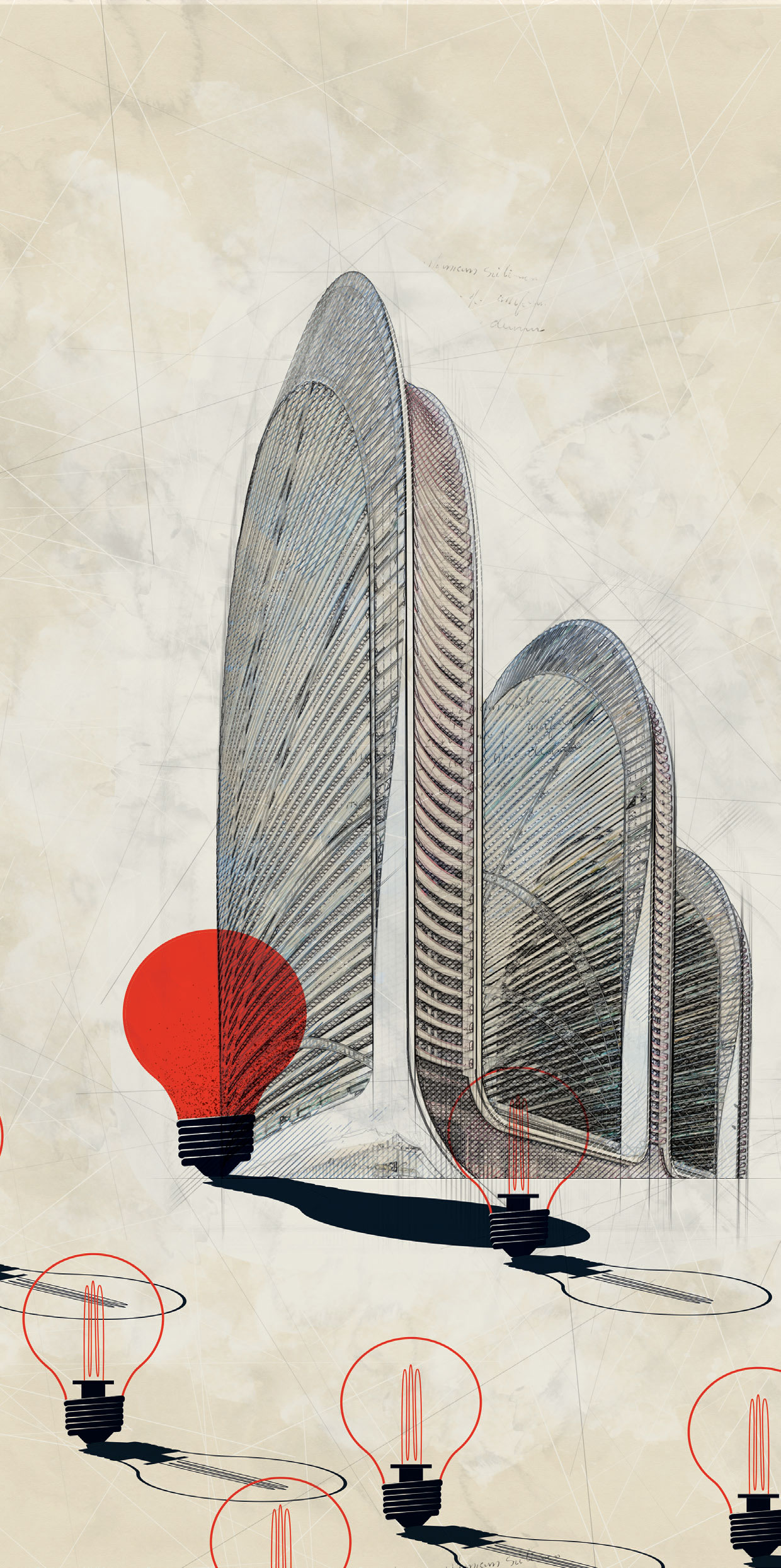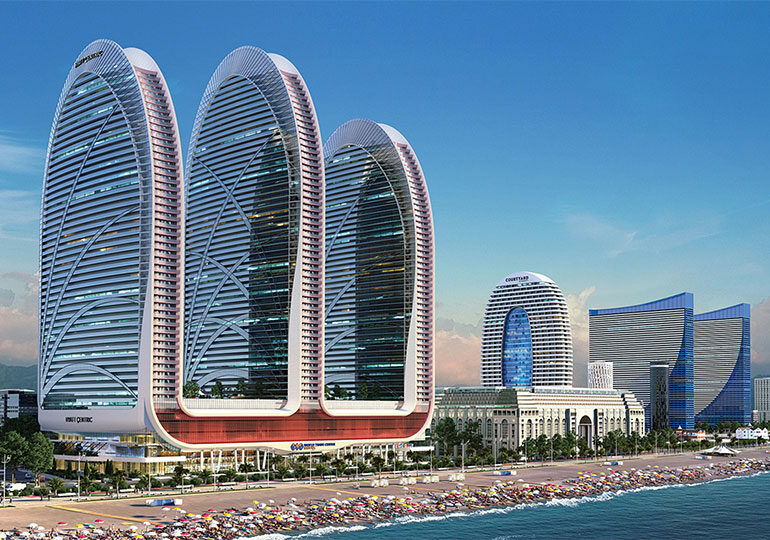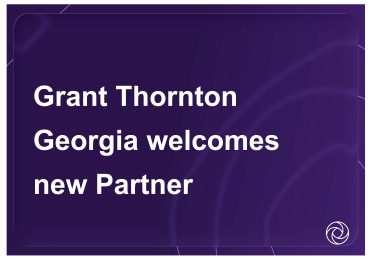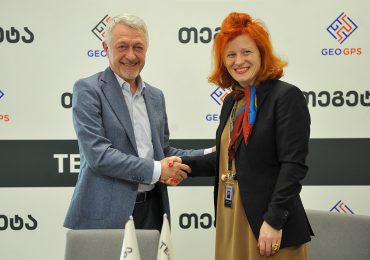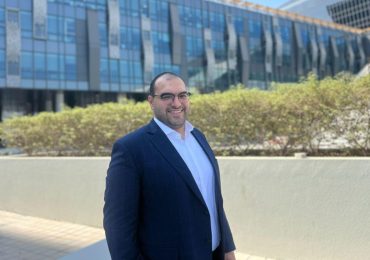They say that every success story starts with a bold idea. That is precisely how the story of Alliance Group began and continues to this day. The company first appeared on the development market in 2005 and helped revolutionize the real estate sector in Batumi. Construction of modern residential homes and the first aparthotel in Georgia was followed by the introduction of several global hotel brands in the seaside city. Now the company intends to turn Batumi into a centre for business tourism and business development. Alliance Centropolis is the name of the idea that was born before the pandemic and is being implemented during this difficult period. The initial cost of the project is $420 million, and it is due to be completed by 2028. The project incorporates a business centre, a shopping centre, apartments, a casino, a Hyatt hotel and, most notably, the World Trade Centre, which will add Batumi to its illustrious list of locations that includes major cities such as New York, Paris, London, Dubai, Hong Kong, Tokyo, and Sydney. The project initiators say that Adjara will attract numerous international companies and business tourists. The Head of Business Development at Alliance Group, Temur Bitsadze, tells us about the company’s plans of turning this idea into reality.
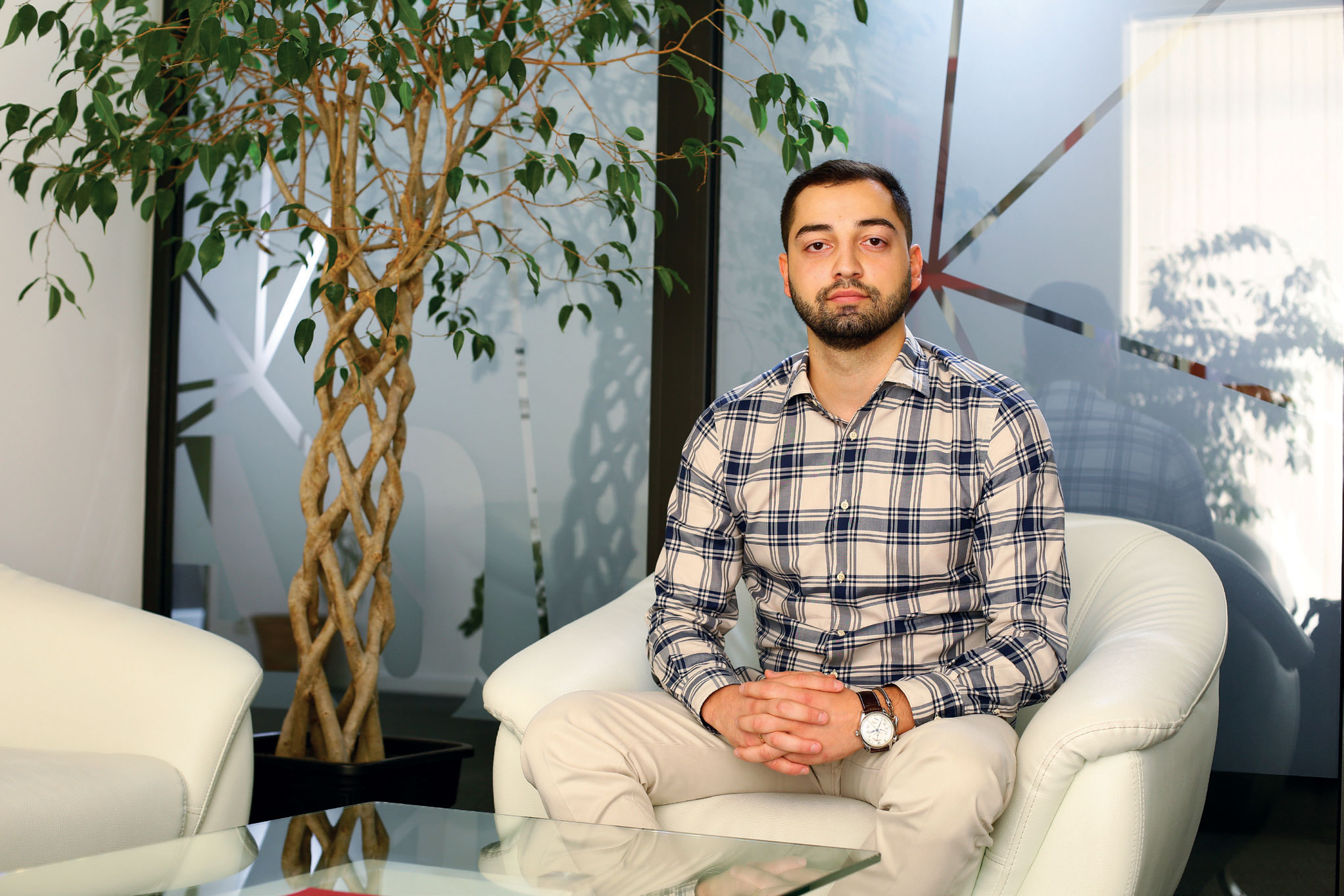
Let’s start with the business centre. According to you, this will be one of the first premium-class business tourism projects not only in Georgia but also in the whole region. Why did you choose Batumi as the project location?
According to the latest figures, there are 177,000 legal entities in Georgia, which is a high figure per capita. There are many business centres in Tbilisi, and more are being built. The capital is saturated in terms of office space, while the opposite is the case in Batumi. We knew that no other business centres had been planned for this seaside city, and that was one of the main reasons why we decided to build ours here. Moreover, offices in Batumi are located on different streets, and there is potential for migration to business centres. This is a good trend and a good argument for building a business centre here. We also decided to focus on foreign companies, which will make the development of the office market in Batumi particularly lucrative. This is important not only for the city but for the country as a whole, as international companies will start congregating here.
Alliance Centropolis will also house the World Trade Centre, which you are planning to turn into the epicentre of business tourism. Bearing in mind that MICE tourism is currently getting a foothold in Georgia, what are you expecting to achieve from this project?
It is important to note that we are not talking about a shopping centre or a shopping mall, as many people in Georgia seem to associate because of its name, as they both are pronounced the same way. This will be the Georgian branch of the World Trade Centre’s Association – one of the world’s largest trade associations with over three hundred member organizations across more than one hundred countries. The World Trade Centre will play the role of a mediator for local businesses on the international market. This will be a place where global experiences get shared. For example, businesses that operate in Georgia and wish to expand internationally will be assisted by the World Trade Centre in this process. The knowledge and experience of WTC experts and professionals will be useful both for the local market and foreign businesses seeking to familiarize themselves with our market.
Batumi is currently known as a summer resort that only attracts tourists for six months a year. There are few visitors in the remaining months even though the city has all the necessary infrastructure for a good holiday, including fashion shops, restaurants, nightclubs, casinos, entertainment, and a beautiful beach with a boulevard. So, how can the city attract more tourists during these months? This is where business tourism becomes particularly important. If we can turn Batumi into an attractive location for business tourists, the whole country will benefit. The World Trade Centre will help us in this process. When an association of this stature comes to the city, you can expect that it will use its extensive list of contacts to easily attract international conferences, exhibitions, and business meetings. We intend to turn Batumi into a regional hub for MICE tourism.
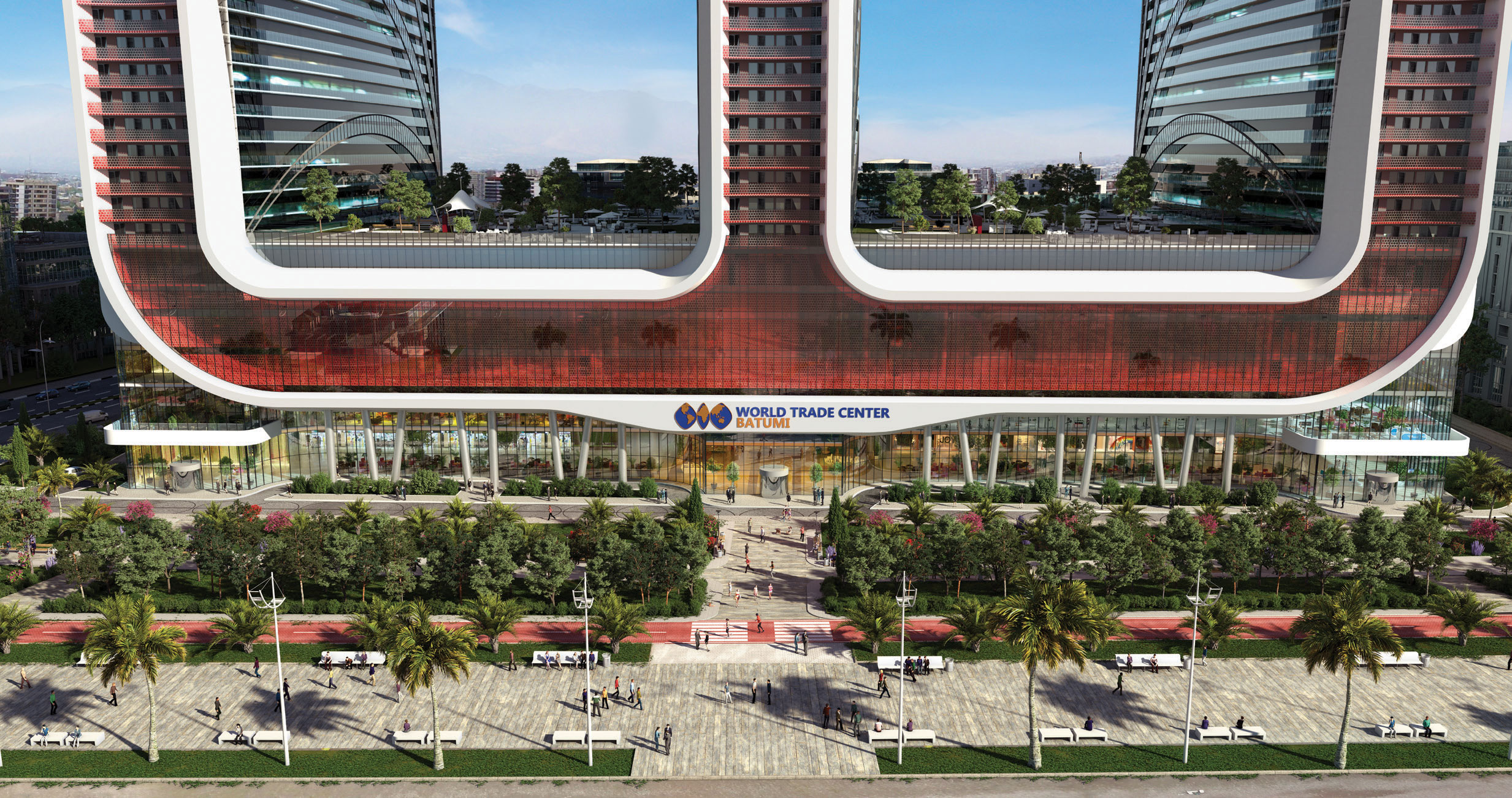
How do you plan to achieve this? What makes you confident that they will choose to come to Georgia?
Global practice shows that whenever a World Trade Centre is built in a country, international companies always start showing interest in that market. Moreover, Georgia has an excellent strategic location – think about the Silk Road. The Alliance Group wants to take advantage of this opportunity. We plan to establish a special team that will work on attracting foreign businesspeople, conferences, and exhibitions to Batumi. Due to Georgia’s strategic location, we expect numerous large international organizations, as well as brokerage, insurance, logistics and transport companies to start operating in Georgia to connect Europe and Asia. This process is inevitable. Our team will establish contact with these companies and offer them advantageous terms to set up offices in our business centre, where approximately 10,000m2 of office space is available. All these firms will definitely also want to have an office in the World Trade Centre, which will help us achieve the project goals.
The implementation of all projects, including the large scale projects like this is always accompanied by risks. What obstacles do you see considering that the restoration of world tourism, according to various estimates, will take 2-4 years?
Pandemic is one of the biggest risks that any business in today’s world can have. That’s our only risk. For us, the possible obstacle is the restrictions caused by the pandemic, which may interfere with our work.
According to the forecasts, the restoration of global tourism will take a maximum of four years and the completion of our project is also planned in this very period. So, we think the risks we see will actually be reduced to zero.
Alliance Group has brought global hotel brands such as Marriott, Wyndham, Hilton and now Hyatt to Georgia. What process do you go through to convince brands of this stature to enter such a small market? Did you encounter any obstacles in negotiating with Hyatt?
Georgia is perceived as a small market, which often makes it hard to negotiate with global brands. Bringing in Marriott back in 2015 was particularly challenging, as it was our first deal of this kind. It is difficult for a company without any experience working with such brands to lure big names to the country, especially since we were ambitious enough to start with Marriott. The talks lasted for a year while Marriott was studying our company’s history, our past projects, and even the individuals associated with these projects. Afterwards, it was much easier to negotiate with Wyndham and Hilton, as we already had the experience. Our case was also helped by the growing tourist numbers that Georgia was posting before the pandemic.
As for Hyatt, we started negotiating with them in 2019 but were initially rejected due to this brand’s earlier unsuccessful experiences relating to Georgia. After we signed the agreement with the World Trade Centre in January 2020, which strengthened our position in negotiations with international brands, we decided to contact Hyatt once more. This time we were successful and received their approval in October 2020. This happened during the second wave of the pandemic, which is a remarkable success that clearly reflects our company’s growing reputation on the international market.
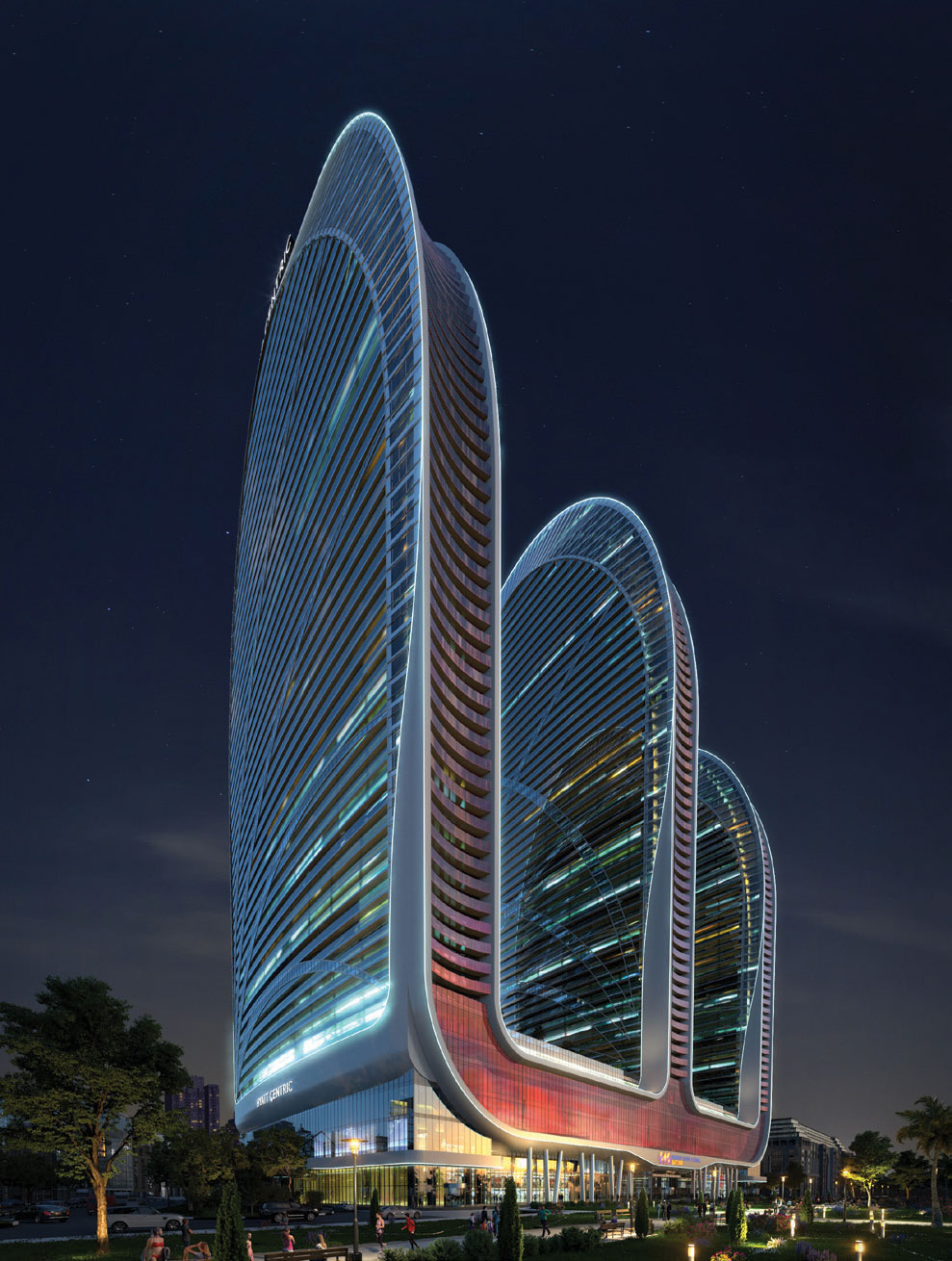
Alliance Centropolis also includes apartments. Who are your core customers in this segment, and what are your sales figures?
Russian nationals used to make up the largest group of buyers of apartments in Batumi, but their share decreased after the suspension of direct flights from Russia in 2019. Demand from Armenia and Azerbaijan also fell after last year’s war between the two countries. Finally, the share of Israeli buyers decreased – once again, due to conflict. All of this gradually affected our sales, and we found ourselves in a challenging situation. We cannot rely solely on the domestic market, as Georgian nationals account only for a third of the sales. This is not enough to successfully operate the premium segment. We, therefore, started to focus on other markets such as Arab countries, Central Asia, and Japan. Our team successfully managed to attract buyers from these countries to compensate for the decreased sales in the aforementioned markets. When faced with obstacles and challenges, you must be able to respond adequately and take appropriate steps.
In June this year, the real estate market in Batumi grew by 47% compared with the same period in 2019. What are your expectations in this regard? As the bulk of your projects are concentrated in Batumi, do you feel growing competition in the city?
Many premium-class projects have appeared in Batumi, but we were the first company to introduce the aparthotel concept and bring international brands to the city. Since then, numerous developers have tried to offer the same concept on the market, but their price level, concepts, quality, and infrastructure significantly differ from ours. I can confidently say that we are the market leaders in this segment, and I believe that Alliance Group has no rivals in Batumi.
Newly built premium apartments constitute the fastest-growing segment in Batumi. The number of transactions in June this year was three times higher than in 2019. Why do you think this is happening despite the pandemic? What does this growth mean for business, and to which trends does it point?
– There may be several reasons for this. First, 2020 was an unsuccessful year compared to 2019. People wanted to buy apartments and invest money during the pandemic but were held back due to the unstable environment and unclear future. As a result, there was a lot of accumulated demand at the beginning of this year. Furthermore, people got used to the crisis and adapted to the pandemic. Buyers started displaying more confidence. As a result, these statistics are likely to be partly the result of accumulated demand. Another likely reason is the growing confidence in real estate as a form of capital. Due to the volatility of currency exchange rates in 2020-2021, people started saving their resources safely and investing in real estate. Naturally, this trend will have a positive effect on developers operating in the premium segment, and that includes us.
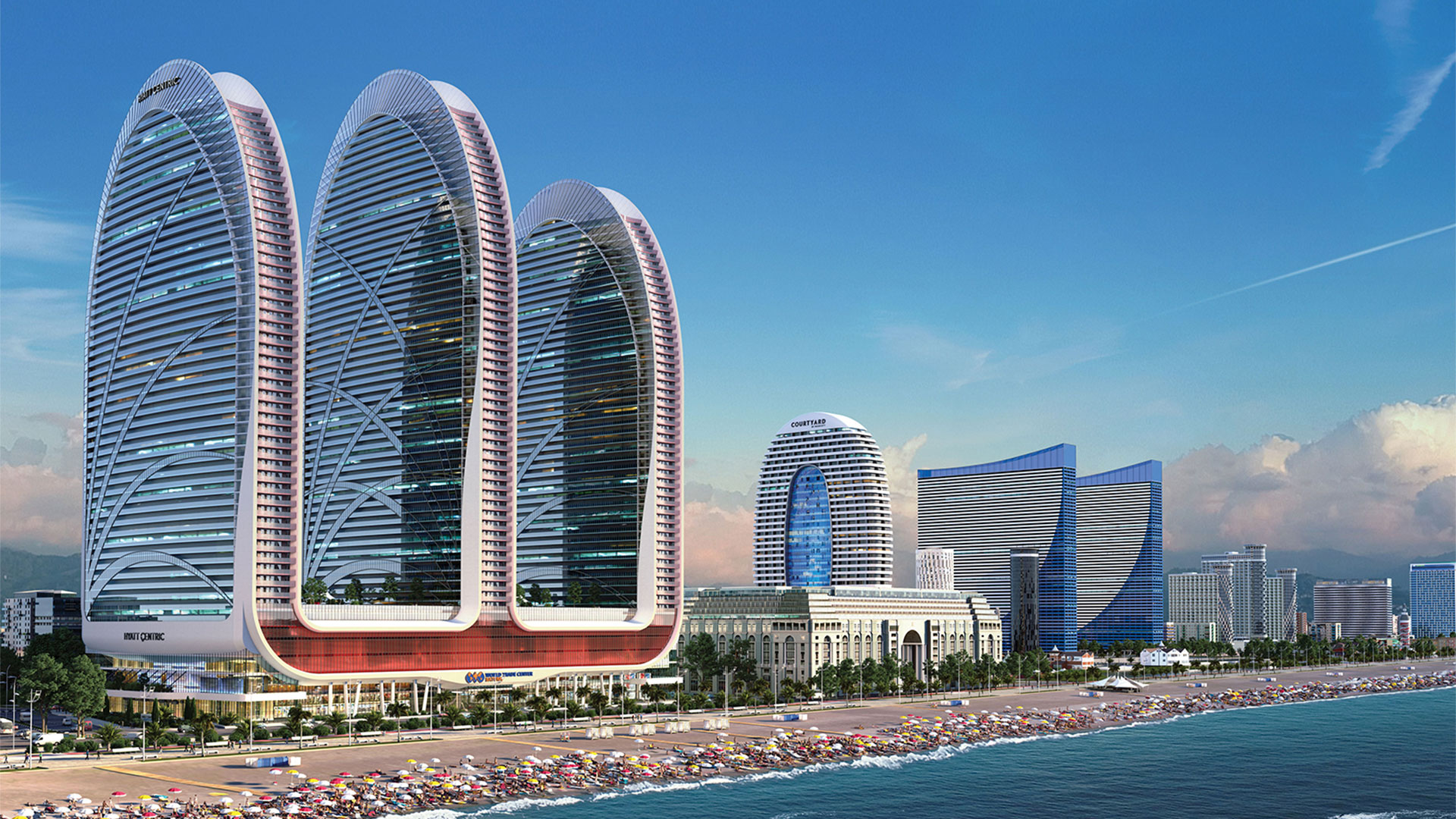
Do you think this trend will persist?
Since people are more positive about the future now than they were in 2020, this trend might indeed persist. We cannot judge by this summer’s figures alone. Let us wait and see what happens in autumn, and then we will be able to draw more precise conclusions.
How effective were the government’s stimulus measures for the development sector? I am talking specifically about the mortgage interest subsidy programme implemented last year. Also, will the subsidy programme for large families, which is due to come into effect in September as part of the 10-year plan, be useful for business?
Generally speaking, any stimulus measures are good for our sector. However, these must be targeted initiatives for them to be effective. The 2020 subsidy programme helped many developers and families. It also had a positive effect on sales figures. Our company could not benefit extensively from this programme, as our focus is on the international market, and reduced foreign direct investment affects our sales. It would be good if the state subsidy programme applied to foreign nationals as well.
Regarding the next subsidy programme, it is impossible to make any assessments before it comes into effect. Of course, if it benefits our sector, then we will welcome it.
Could the programme create excess supply?
The programme will run for five years, so it will probably raise demand. Increased demand would then lead to increased supply. However, developers are unlikely to act until they observe the programme in action for a year.
Prices are going up due to currency fluctuation. You operate primarily in the premium segment. Does the volatile currency create problems for you and make the business unpredictable?
Currency depreciation hits the market hard and leads to an increase in real estate prices in GEL. We are unable to lower our prices because construction materials have become even more expensive in recent months. This prevents local customers from purchasing the product. Since 60-70% of our clients are foreign nationals, we have not been severely affected by currency fluctuation. The same cannot be said about the developers whose focus is on the domestic segment.
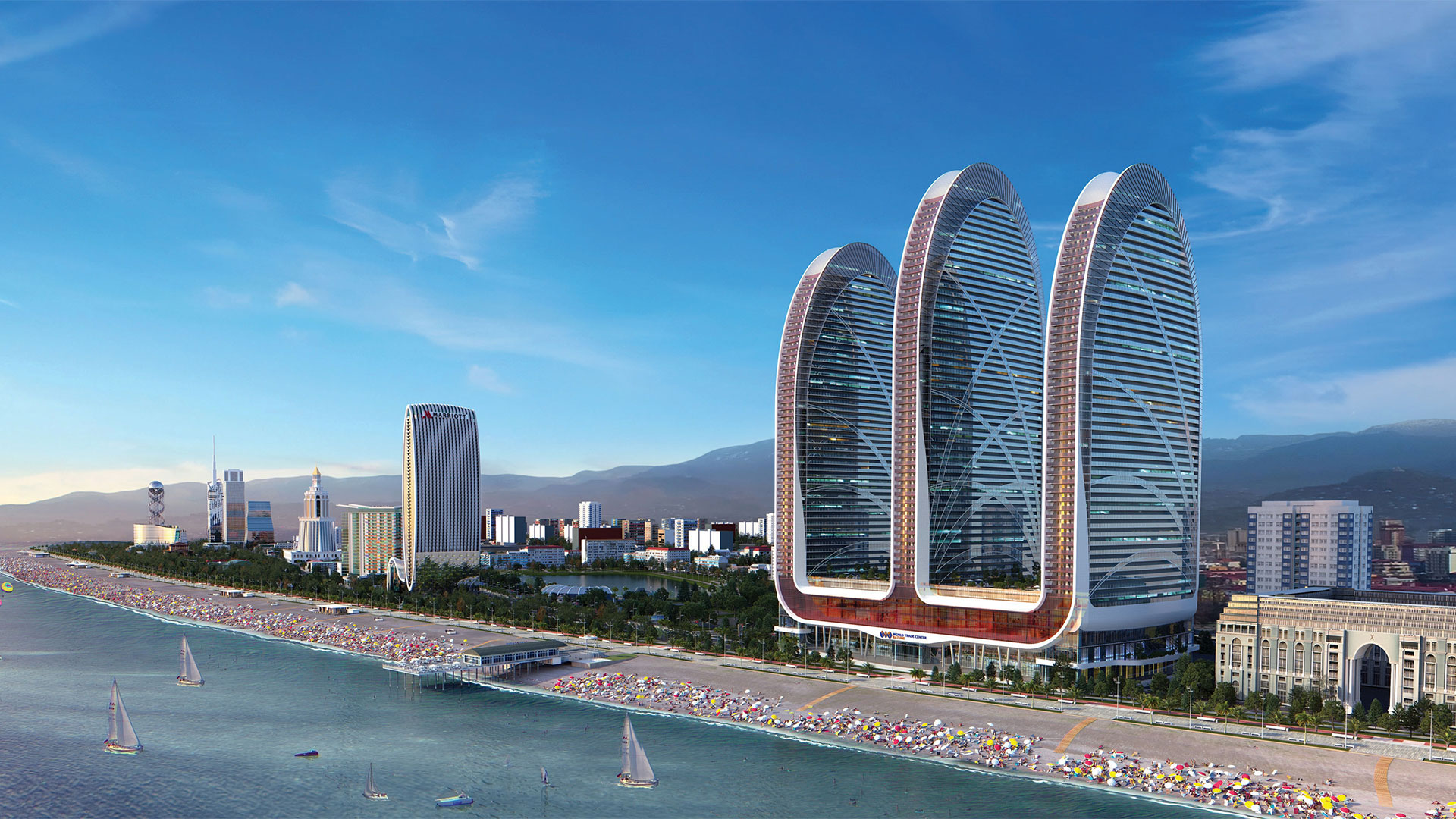
According to statistics, new construction permits are issued for 67 million m2 of floor area each year. However, the total floor area of the completed real estate projects is only around 22.5 million m2 per year. Why is this the case? Is it related to the difficulty that developers have to access financial resources?
Such a big gap represents a real problem. Lack of access to financial resources could be one of the reasons, the pandemic could be another. Furthermore, the negative statistics concern the last few years when many new permits were issued for projects that have not yet been completed. I, therefore, think that the gap between the figures will be reduced over time. At the same time, it is also clear that many construction projects are now being implemented with little investment and depend entirely on property sales. If these properties cannot be sold, then the development firm is left without resources and unable to complete construction on time. This leads to some of the projects being delayed, terminated, or mothballed.
Apart from Alliance Centropolis, your current projects include Alliance Palace and Alliance Privilege in Batumi, the health resort in Kobuleti and Alliance Highline in Tbilisi. How are these projects coming along, and what else can we expect from your company in the future?
The Alliance Palace apartments are already in use, and the signature restaurant is operational. Alliance Privilege, which will house the Marriott hotel, is almost complete. Façade works are currently ongoing and are due to be finished by the end of the year. The alliance Highline project in Tbilisi is at a similar stage. Construction works are yet to start in Kobuleti, where the project includes the Hilton Garden Inn hotel and apartments. In the current situation, we decided to actively concentrate on Alliance Centropolis and delay the Kobuleti project in the hope that the environment will become more stable soon.
Apart from ongoing projects, we also have other investment plans and will soon be offering new tourist services in Georgia, which will be a novelty on the local market. We will provide more information about this in the near future.
